|
When I first joined Quora back in 2010, I was asked to create a brief profile. Here is what I wrote:
I'm an athlete, a play expert and a content marketer. The nicest thing I've ever done is let a kid who was missing an arm carry his own suitcase. I guess you could say my "thing" is empowerment. Read more at http://www.thehappytalent.com.
Several people have asked me about the suitcase thing, and I thought it deserved an explanation -- after all, empowerment is something I've always been passionate about.
Well... maybe not always. It's something I started thinking about seriously in 2008, when I took a class called Interpersonal Basis for Abnormal Psychology with Professor Len Horowitz. If I had to summarize ten weeks of learning in a paragraph, it would be this one: All of human interaction can be graphed on an X-Y axis, where X is communion (actions that show caring and bring us closer to others) and Y is agency (actions that establish power or authority. During social interactions, the behavior of one person invites complementary behavior from the other person -- or else there is tension in their system. If I do/say something that is high in agency, the complementary response will be low in agency -- we can't both be the authority. Meanwhile, if I do something high in communion, the complementary response would also be high in communion -- we like people who like us, and it hurts to be rejected.
It looks something like this.
This research is super interesting -- and a little problematic. Because, by interesting coincidence, human depression tends to manifest itself in one of two ways: feelings of disconnection/low communion (e.g., "I'm lonely," "No one loves me," I don't have a single friend that I can confide in," etc.) and feelings of helplessness/low agency (e.g., "I feel helpless," "I feel worthless," "It's hard to get out of bed in the morning," etc.).
This leads us to The Dilemma of the Depressed Person.
Say you've got a friend who tells you they're feeling depressed. You care, and you want to help. So the next time you see them, you say, "Sweetie, how are you?" "Are you okay?" Where do these questions fall on Horowitz's X-Y graph? Well, on the one hand, they are high in communion, because you are showing that you care about your friend. But on the other, they are also high in agency -- basically what you're saying is, "I'm okay and you're not, so let me help you." There's, like, a 50% chance that your friend is struggling with feelings of low communion, and your actions will make them feel good. "Look!" they'll think, "Someone cares about me, after all." But there's also a 50-ish% chance that your friend is struggling with feelings of low agency -- and your high-agency questions force them to make a choice: a high-agency response, which, as I mentioned, causes tension ("I'm FINE -- WHY do you ask?" "Of COURSE I'm fine." "Bug off!")... or a low-agency response, which is demoralizing! And the complete opposite of what they need.
Likewise, many well-meaning friends, family members and partners try to offer their depressed relation advice. "Snap out of it!" "You should try getting more exercise -- that helps me when I'm feeling blue!" "Try eating healthier foods!"
This, too, is demoralizing. Rather than expressing sympathy and understanding, you're basically saying, "The problem is that you don't know how to take care of yourself. So I will tell you how to take care of yourself." Which is obviously very high in agency. Not to mention, as this comic so beautifully illustrates:
If you've never been depressed, and you are giving advice to a depressed person, THIS is probably what you sound like.
*** Learning about the Dilemma of the Depressed Person made me angry and concerned about the way we "help" depressed people in our society... But then I got to thinking. What about other groups of "disempowered" people? For example, people with disabilities? Sexual assault victims? Negatively stereotyped minorities? About two seconds of research revealed that, yes. These people are regularly on the receiving end of high-agency behavior. It is shocking, and a little sad, that the United Spinal Association has to explicitly say, Ask before you help
It's shocking, and a little sad, that we need to have a special #EndTheAwkward campaign to teach people to treat people with disabilities like people.
But I guess it's not that shocking. I see it all the time. For example, that time I let a boy with only one arm carry his own suitcase. Pretty much everyone who witnessed this called me a terrible person afterwards. "Why didn't you help the poor boy? He only has one arm!" "How could you be so heartless?" "Would it have killed you to carry his suitcase for him?" No. It wouldn't have killed me. But it would have killed him. Just a little. On the inside. Think about it this way. This boy had been born a certain way. His whole life, he'd only had one arm. And, being able-bodied in so many other ways, he learned how to compensate and operate independently. And, certainly, he'd learned to ask for help when he needed it. So what message would I have sent if I had just assumed he wanted/needed my help? "I don't think you can do it." "You're helpless." "You're different from me." "I don't see a person. I see a disabled person." Again, it's pretty demoralizing, isn't it? But wait! I thought to myself. This isn't exclusive to people with visible disabilities. It happens... to me! All the time. In fact, it happened last night. I was at the gym, playing basketball. Now, keep in mind, I'm 6'0, 165 pounds, and I've been playing ball since I was five. I was a Boston Globe All-Star, an MVP and a DI athlete. I did Class-III rapids my first day of whitewater kayaking last weekend, and a few days later, I biked 73 miles around Lake Tahoe. (It was probably my fifth bike ride ever, and my first ever longer-than-40-mile ride.) I might decide to up and run a marathon someday, just 'cause whatever. In other words, I'm taller, stronger and more athletic than the average man. I've got abs that look like this:
Clearly, even I was amazed... #ChooseBeautiful #BeachCamping
So we've shot our 3's and picked our teams, and one of the guys on my team has strong-ish looking arms, and a belly that looks a little like this:
He approaches another dude on the team, turns his back to me, and begins discussing... who I should guard.
Comparing my height/weight/skill level to those of the others on my team -- and the opposing team -- it was obvious who I should guard. So I interrupted. "I want the guy in the black shirt." Keg Belly smiled sweetly and said, "Him? No! You need someone who isn't going to muscle you around." "Are you kidding? I guarantee that I could muscle the fuck out of you," I answered. "So why do you think I need to be treated like a delicate little flower?" I may have also said something along the lines of how rude and sexist he was... And scoffed at him every time he got scored on by his man, who certainly wasn't having trouble muscling Keg Belly around. Likewise, when I play basketball with men, and men fall down, the game goes on like nothing happened. But, often, when I fall down -- everything stops. Men look shocked and horrified. They run to my aid to ask if I'm okay. I used to say something pretty rude when they did that. But now, I just say, "Of course -- why wouldn't I be?" (Which, you know, if not the complementary response, and causes tension in our system. But, as I've said before, it's important to #BeRude sometimes.)
It's never fun to be talked down to. It's never fun to have your independence, autonomy, hard work or abilities doubted. It's never fun to feel different, discriminated against, or less than. People who are disabled, depressed, Black, Asian, female, and a whole list of other things have to deal with this every. Single. Day.
And when you give people unsolicited advice, there is a large chance that that is what you're doing -- perhaps to someone you care about. Which is completely stupid! Because, for all you know, you're a Keg Belly talking to a Six Pack. *** The other thing about the horrible, "Are you okay?" question is that... it can be really inconsiderate and uncomfortable for the person you're asking. Like, I play ball, it's inconsiderate because it's like you're telling me I'm not as fast or strong or good as you. But when you ask it to someone who's actually struggling through something, like depression or a sexual assault... You're kind of bringing up something they might rather not talk about. Someone recently posted on r/depression, Does anyone else hate being asked , "Are you okay?" Users commented,
Basically, users appreciate the communion aspect (e.g., "It might me feel like someone cares," "I really love that people care about me and it makes me feel good,")... but the question is still largely uncomfortable for them. Either because they're not that close to you, and they feel like they're "supposed" to say they're fine; they are that close to you, but talking about their problems is a total major trigger for them; or they're embarrassed that they feel like they do, and would rather not share.
Which... makes sense. You wouldn't ask someone you didn't know that well, "Hey, how did your colonoscopy go? Are you okay?" "Hey, how's the new birth control working out for you? Is everything okay?" So why inquire about an equally sensitive mental health issue? Or an extremely personal matter? It makes sense because there's all this demand for "trigger warnings" on books, movies and news articles online... yet we mindlessly ask people we love how their personal struggles are going. You know that good mood they might have been in when you asked that? Yeah, it's gone. Out the window. It makes sense because there are so many better things you could be asking them. Questions that remind them that, just because they're struggling now, they're totally hanging in there and doing fine. Questions that show them you know they can do it. Questions that reassure them that they are still the person they used to be, and you totally still see them that way. Questions that remind them that they still have agency, independence, and autonomy. But that you care, and are totally ready to support them, if and when they need it.
Questions (and, I guess, statements) like:
To be perfectly honest, I haven't done an experiment to see if these questions have a better effect on a depressed person's mood or long-term well-being. So I guess it would be a little unscientific to say these questions are any better than, "Are you okay?"
BUT. Let's be real. Whoever you're talking to, anywhere in the world, each of these questions is better, more personal, and more interesting than some generic, scripted question like, "Are you okay?" I mean, if that's all you've got, why don't you just delete your default SMS app and replace it with Yo? I haven't tested this, either, but I would daresay that people who used a mindful, thoughtful greeting like the ones above would probably also be seen as warmer and more charismatic. (Remember: charisma is a science, not an art.) So... get mindful. Be a better conversationalist. Treat people like people, and ask better questions. Do you have a greeting/question you use to get a conversation going? Share it in the comments, below!
27 Comments
10/6/2015 11:29:50 am
Hi! First things first, I found your site through Quora. Social networking actually does work, it would appear.
Reply
Caitlin Coleman
4/19/2016 07:22:53 am
Thankyou for this. I have been looking for a way to explain this to my mother and this has really helped :) xoooox
Reply
Carlie
7/4/2016 12:09:18 pm
Good advice. I had a pretty rough childhood with a bipolar father so, as a person who's always afraid of the sudden and seemingly random outbursts of an important figure, I am always asking my fiancee if he's okay. I know it irritates him but its like a compulsive thing, I don't even know I'm saying it! I will try to use your suggested conversation methods. Wish me luck
Reply
jonel
12/16/2016 06:22:22 am
God bless buddy
Reply
Kauren Prints
10/25/2016 12:05:46 pm
Thank you so much for this great article! I would like to go on a campaign of teaching people how to more construstively satisfy their need to show concern for someone else's well being. Because that's what it is right, their own need to show concern.
Reply
Henry James Archer
11/10/2016 08:02:41 am
Thank you for posting this wonderful and most helpful guide on why asking people if the are O.K. is not O.K... Very helpful! :)
Reply
Denise
1/27/2017 06:30:20 am
Thank you for this. I have struggled for years with feeling "invaded" by my mom's constant questions about "how are you doing?" Especially if there is anything even slightly wrong (like I have a cold), I'll often get multiple phone calls/texts a day asking how I'm feeling. I realize she is doing this because she cares, but it is SO irritating. I'm trying to understand why I respond this way to something that is obviously being done because she cares. And yes, there is often (and historically) a TON of unsolicited advice involved (and the more intimate details she knows, the more advice she'll have and more opinions she'll share), which I know is a lurking trigger for me.
Reply
julia
12/18/2017 06:28:45 pm
omg thank you for this, I was about to ask that, (I'm sorry we only do it out of ignorance) but before I did I questioned myself if it was apropiate or not, then I searched n got here. but I don't actually know this person and it seems that is very depressed n lonely and I feel I can't do anything about it.
Reply
Valeria
2/6/2018 01:34:45 pm
Thank you. I unfortunately read this only after daring to ask for the first time. And I am really sorry I did not find this sooner.
Reply
Zeph
5/19/2018 12:33:01 pm
I have strong reservations about conceiving "agency" as a zero-sum game, where one person can only have agency at the cost of reducing somebody else's. That strikes me as a particularly dominator culture framing. I am most comfortably around people who are (usually) high in their own agency and respect mine.
Reply
Zeph
5/19/2018 12:39:47 pm
I want to add that it's pretty obvious in reading some of the responses that (1) there are other people who react as you do and who are grateful to have you express their viewpoint so well, and (2) they are just as clueless about people who are wired differently, as those people are about them!
Reply
5/25/2018 11:19:54 am
> I'm also not sensitive about being asked "are you OK?". Doesn't bother me, doesn't happen too often. So I don't inherently "get" why it upsets you so strongly.
Reply
Wow
7/31/2018 12:41:34 pm
Wow. The author sounds like an exhausting person to be around.
Reply
8/3/2018 02:45:22 pm
I can be. It depends on whether you like to turn off your brain and body and just watch TV all day... or always be thinking and exploring and creating and having fun. :)
Reply
Taurie Hackemer
7/6/2019 11:34:37 am
You seem like a really caring and thoughtful individual and I would love to be your friend. Are you located anywhere in or around Northern CA, permanently? I saw one article where you mentioned Tahoe, but not sure if it was a trip you took, or you do live around here.
Reply
2/24/2020 07:57:33 am
Wow. What an insecure person you are.
Reply
Hahaha
2/24/2020 06:51:10 pm
We’re you in my Italian class or something?? Because you sure as hell seem insulted by what I had to say!! So maybe you should take your own advice and “choose to not be offended.” By the way, the way you write is extremely creepy and I was weirded out the whole time I was reading it. Work on your English and syntax cause it just reads like you have some major issues going on. Anyways all the luck to you dearie!
Reply
P. II
2/24/2020 06:53:06 pm
Also anyone who labels themself a “secure person,” as their name, is most definitely not, a secure person, LOL.
Reply
Tracey
2/24/2020 08:05:38 am
This resonates with me, I have spent hours trying to figure out why I find the “are you ok?” question so annoying even offensive at times. This question can lead me to stop communicating altogether with a person and boil inside, even with people I have been open with leading up to the the fussy “are you ok? Question came up. It’s as if I don’t mind telling you what’s going on with me because I decided to tell you but don’t dare ask...isn’t it obvious I’m ok? Or isn’t it obvious I don’t want to share my thoughts with you? Because if I did want to share I’d share!! Yesterday I wanted to tell you all about my woes today I don’t! How dare you invade!
Reply
2/24/2020 05:36:30 pm
You are absolutely 100% somebody who has been hurt a lot in the past. You should address your memories.
Reply
Periwinkle
7/30/2020 08:11:38 am
If you think you're being helpful (which you're not, btw) at least don't be so condescending. You seem like you have a superiority complex. 8/2/2020 01:40:16 pm
Periwinkle -- "Just a person" isn't trying to be helpful. He sounds like he's trying to feel good about himself by making little "tee hee!" statements, and condescension may be one of only ways he can feel smart. I would have said something myself if I'd noticed this comment when he posted it. Thanks for calling out the rudeness.
Reply
Erdaberda
1/30/2023 02:16:46 pm
As a person living with chronic pain, I hate the question “Are you ok??” No, kid, no, I’m not. But thanks for reminding me of the fact that I am disabled and you’re not. And, to be fair, the repeat offenders are the ones that really frustrate me. I’ve articulated how I feel so many times, but nothing changes. I shared this article with a friend who can’t help themselves but ask every time I make a sigh, moan, or gasp. I can’t change this person. What can I do to stop being triggered?
Reply
2/3/2023 05:11:27 pm
It's an obnoxious question, ESPECIALLY coming from someone you've already told how you feel. What I would do is think of some ways you would LIKE to respond in these situations. Mentally rehearse doing it. And then, when push comes to shove, DO it.
Reply
Emerald
5/21/2023 01:09:10 pm
Dug 98% of this, really useful breakdown that delivers its point well.
Reply
Leave a Reply. |
About the Author

Eva is a content specialist with a passion for play, travel... and a little bit of girl power. Read more >
Want to support The Happy Talent? CLICK HERE!
Or Find me on Patreon!
What's Popular on The Happy Talent:
Trending in Dating and Relationships:
What's Popular in Science: Playfulness and Leisure Skills:
Popular in Psychology and Social Skills:
Categories
All
|
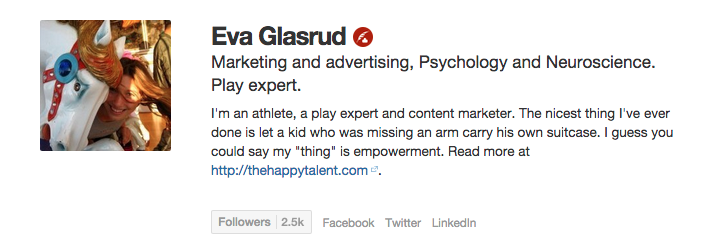
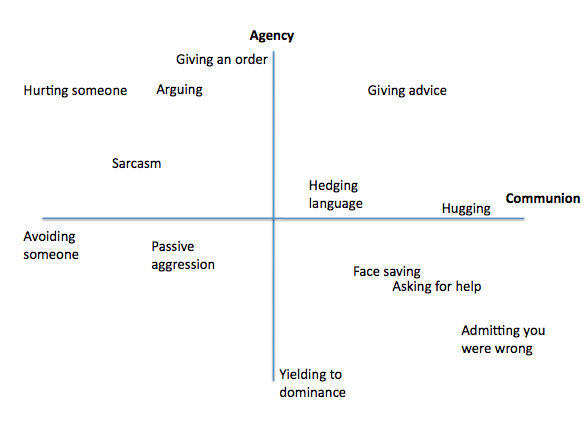
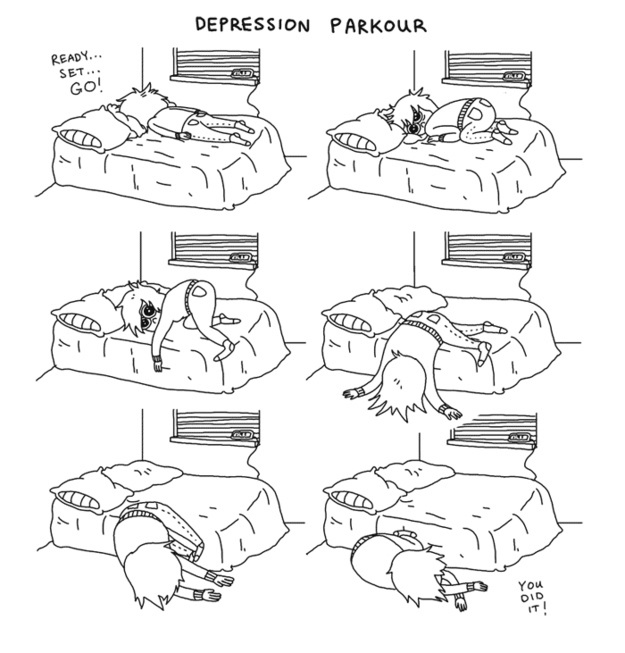
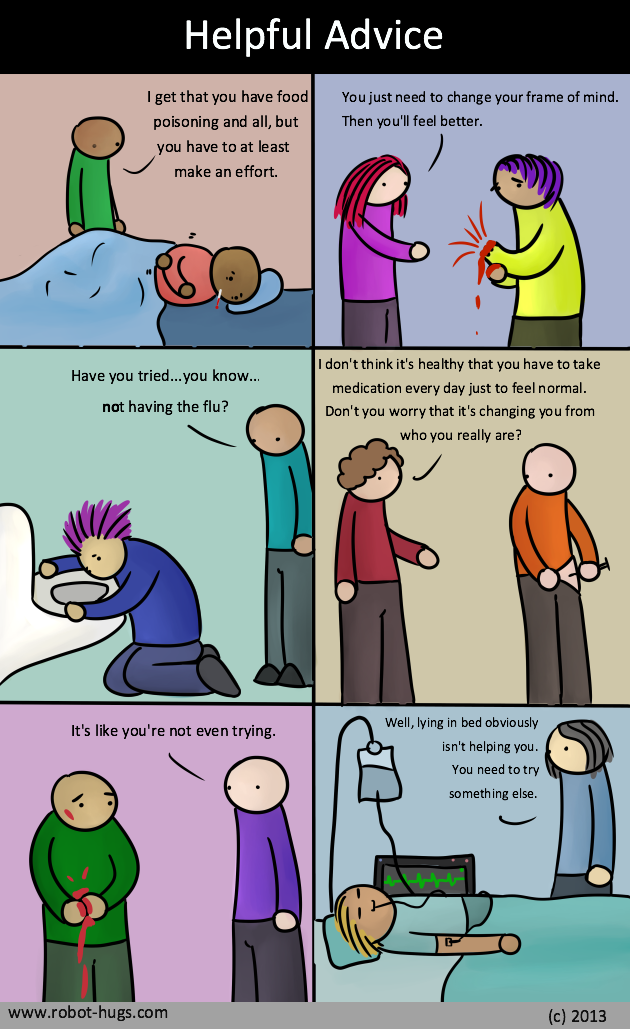

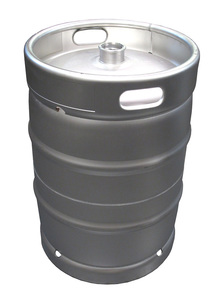
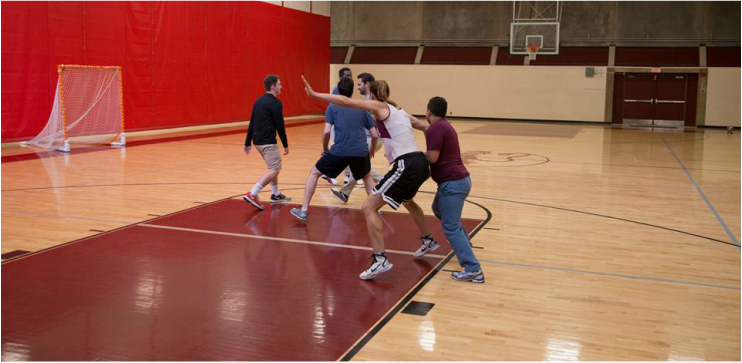
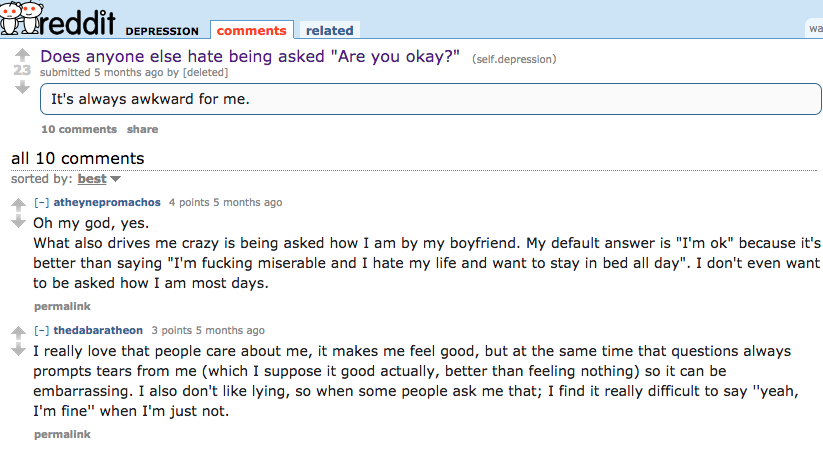
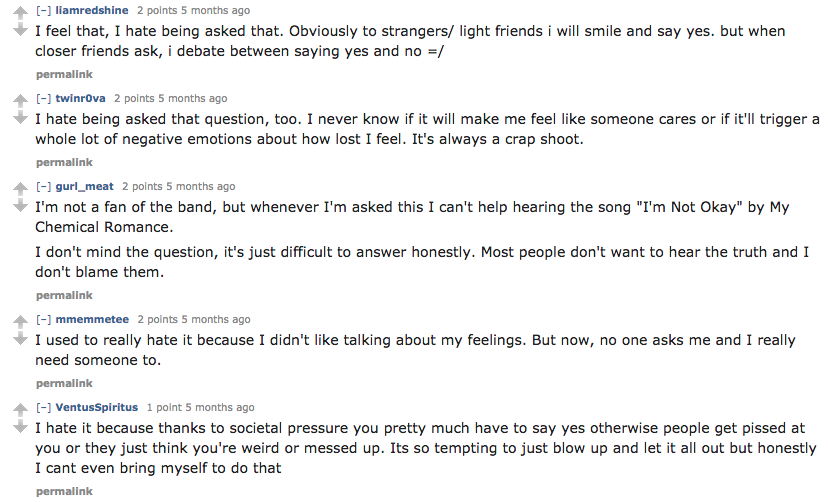


























 RSS Feed
RSS Feed